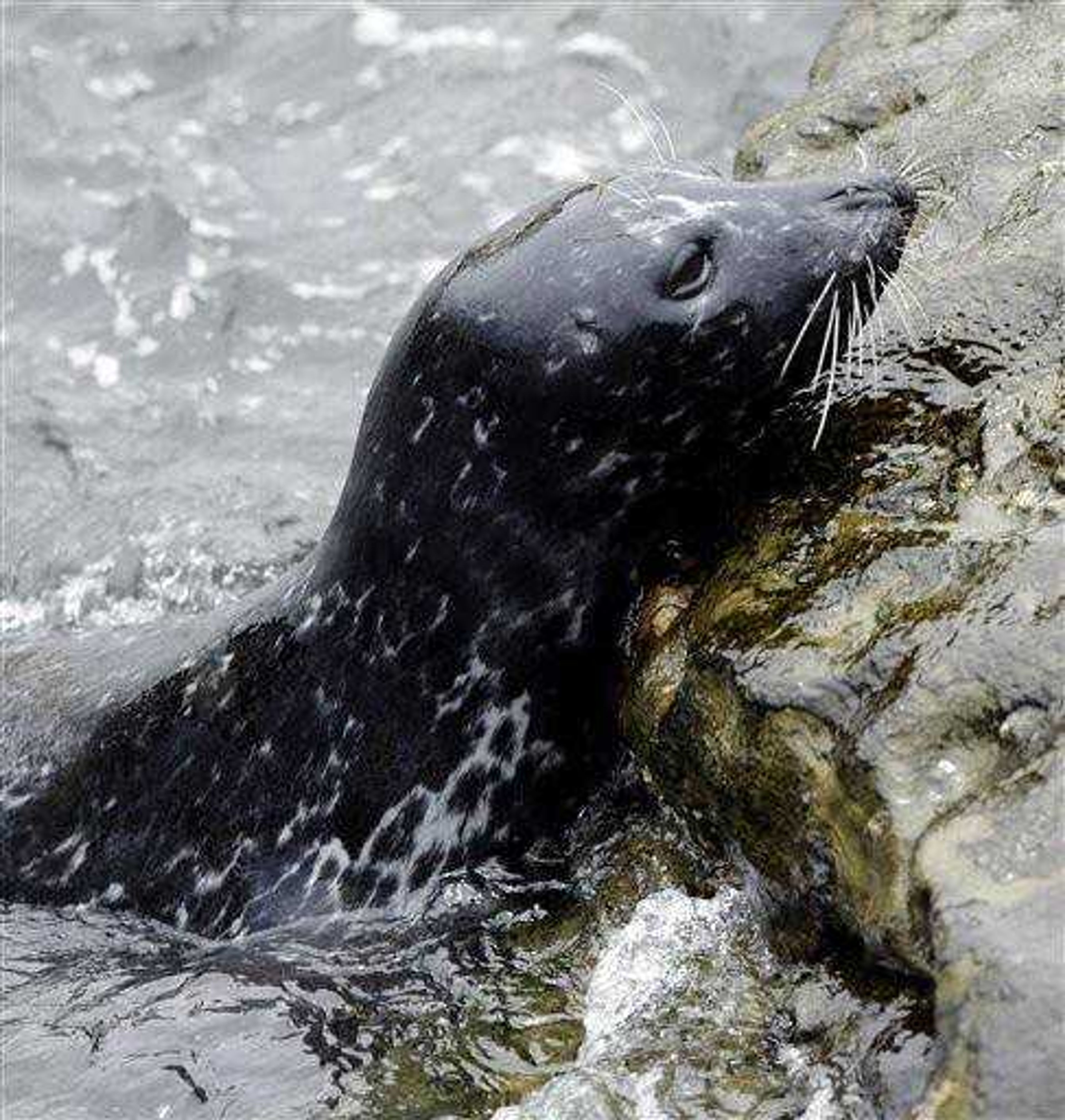Popular San Diego seals win reprieve from governor
SAN DIEGO -- A colony of federally protected harbor seals is causing a stink about whether it should spend its days lounging at a popular San Diego cove or be sent packing. On Monday, Gov. Arnold Schwarzenegger signed a bill that adds a marine mammal park to the list of acceptable uses for the sheltered cove where the seals have lived for years...
SAN DIEGO -- A colony of federally protected harbor seals is causing a stink about whether it should spend its days lounging at a popular San Diego cove or be sent packing.
On Monday, Gov. Arnold Schwarzenegger signed a bill that adds a marine mammal park to the list of acceptable uses for the sheltered cove where the seals have lived for years.
The potential reprieve came just hours after a San Diego judge ordered the city to begin chasing the pesky pinnipeds from the beach by Thursday -- or risk hefty fines -- to comply with a 2005 order to restore the cove to its original condition.
Gina Coburn, a spokeswoman for the city attorney's office, said city officials will hold a news conference Tuesday to announce their plans now that state law includes a provision for the seals at the site.
Environmentalists rejoiced at the news and had high hopes for the seals at Children's Pool, one of two beaches in Southern California where harbor seals give birth and nurse their young.
The bill means that the city, which had planned to spend $688,000 chasing away the seals, has legal grounds to ask the judge to change his order, said Bryan Pease, an attorney for several pro-seal groups.
"Now it's clear that under state law the seals can stay," he said. "This is really a game-changer. This is really the end of the road for the anti-seal forces."
Before Schwarzenegger's reprieve, the city said it planned to hire someone to walk the beach with a public address system broadcasting the sound of barking dogs to scare off the seals, said Andrew Jones, the assistant city attorney for civil litigation. Force cannot be used because the seals are a federally protected marine species.
The issue is so hotly contested that the city had planned to deploy two police officers to the site to prevent interference by pro-seal activists, he said.
"There's certainly a lot of emotions revolving around this issue. We expect that this person could be harassed, even physically attacked," Jones said after the judge's ruling.
The city has said in the past that if the bill was signed it would likely declare the small beach a seal sanctuary and the City Council approved a resolution several years ago favoring the pinnipeds, Jones said. The seals attract dozens of tourists each day who watch them as they doze in horizontal rows and paddle lazily about the shallow, sheltered cove.
"The seals need rest each day. If they don't get their rest, their health will be jeopardized and the local community will also suffer a huge economic cost," said Dorota Valli, who coordinates a pro-seal campaign for the Animal Protection and Rescue League. "It's an enormous tourist draw."
At the pool Monday, about two dozen seals lounged on the sand in a light marine fog, oblivious to the legal tussle over their fate.
One human observer wasn't impressed.
"I don't particularly like them. I think they smell, and I'm not interested in looking at them," said Kees Hendricks, 60, of Vancouver Island in Canada. "I don't think there should be a whole beach for the seals."
Children's Pool was created by a sea wall built in 1931 through a gift by La Jolla philanthropist Ellen Browning Scripps. The state, which owns the cove, subsequently placed the beach in a trust and listed several possible public uses for it, including a children's beach and a park.
Seals began showing up in increasing numbers during the 1990s. In 1997, the city posted a warning that the pool shouldn't be used because it was contaminated with high levels of bacteria from seal waste. Still, some people continue to use it.
In 2004, a disgruntled swimmer filed suit, alleging that a seal sanctuary was not one of the permissible uses listed in the state trust. Paul Kennerson, an attorney for the swimmer, did not return a message Monday.
___
AP Writer Robert Jablon in Los Angeles and AP Photographer Lenny Ignelzi in San Diego contributed to this story.
Connect with the Southeast Missourian Newsroom:
For corrections to this story or other insights for the editor, click here. To submit a letter to the editor, click here. To learn about the Southeast Missourian’s AI Policy, click here.









